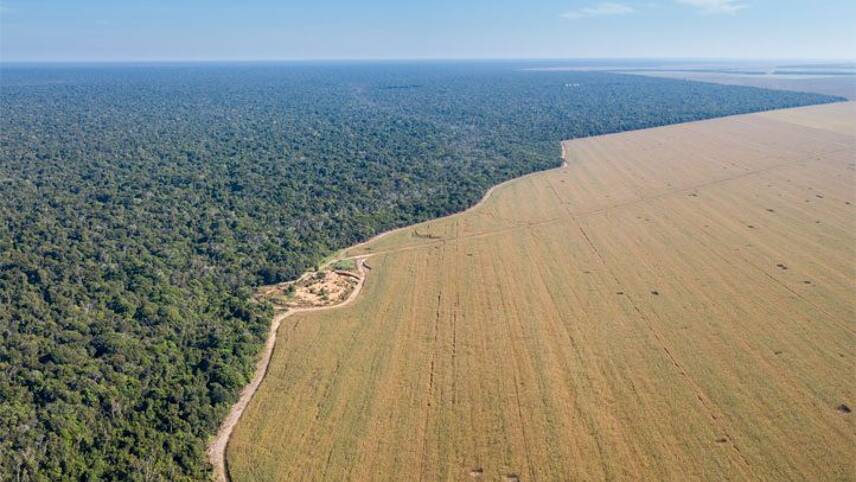Register for free and continue reading
Join our growing army of changemakers and get unlimited access to our premium content

In a new report, published today (26 August), WWF outlines the extent to which forests will still be at risk if the legislation, first proposed by the Department for Food, the Environment and Rural Affairs (Defra) last August, is enshrined in law.
The legislation is designed to eliminate all illegal deforestation from the international supply chains of commodities with a high forest risk. Materials covered include soy, palm oil, cocoa, beef, rubber and leather alongside forestry products like wood and paper. Corporations procuring these materials in the UK will be subject to a “comply or explain” requirement to prove their supply chains are free from illegal deforestation. Non-compliance will result in fines.
WWF, like many other green groups and large businesses, has argued that the law does not go far enough, as many key supplier nations for these materials do not have a broad scope for criminalising deforestation. The new report, entitled ‘Due Negligence’, outlines the levels of global deforestation that could still be permitted under Defra’s existing proposals.
Looking specifically at one commodity (soy) sourced from one nation (Brazil), WWF has identified that more than 2.1 million hectares of natural habitat could be deforested legally under current national laws. This is an area size larger than Wales. The report also points out that Brazil is currently proposing measures that would weaken forest protection, much to the dismay of environmental groups and to businesses with sustainable sourcing targets. If these measures pass, the area size at risk would be larger.
WWF is emphasising the fact that satellite imaging cannot always help users identify whether an area of forest has been cleared legally or illegally – and neither can other forms of tracking, often due to poor data. Besides leaving forests at risk – and thus harming biodiversity and reducing carbon sequestration – the NGO is arguing, this will make it challenging for businesses to comply with the legislation in its current form.
WWF is also calling for ecosystems other than forest to be covered by the legislation.
The publication of the report comes two weeks before Parliament officially returns from summer recess on 6 September. Shortly after this, the Environment Bill, through which the new legislation is being introduced, will continue its progression through the House of Lords.
edie has reached out to Defra for a comment on the WWF report.
“Nature is our ally in the fight against climate change and, to protect it, we must drastically reduce the UK’s global environmental footprint, not least by ensuring we aren’t adding to the destruction of precious habitats like the Amazon and Cerrado,” WWF’s executive director of advocacy and campaigns Katie White said.
“The law proposed by UK government to stop deforestation isn’t yet robust enough and must be strengthened if it is to prevent further destruction of natural ecosystems – whether legal or illegal.
“This must sit alongside a legally binding target to slash the UK’s global environmental footprint by 2030. Ministers have promised to protect nature and ensure a safe climate for future generations – we won’t forget should they fail to deliver.”
Sarah George


Please login or Register to leave a comment.